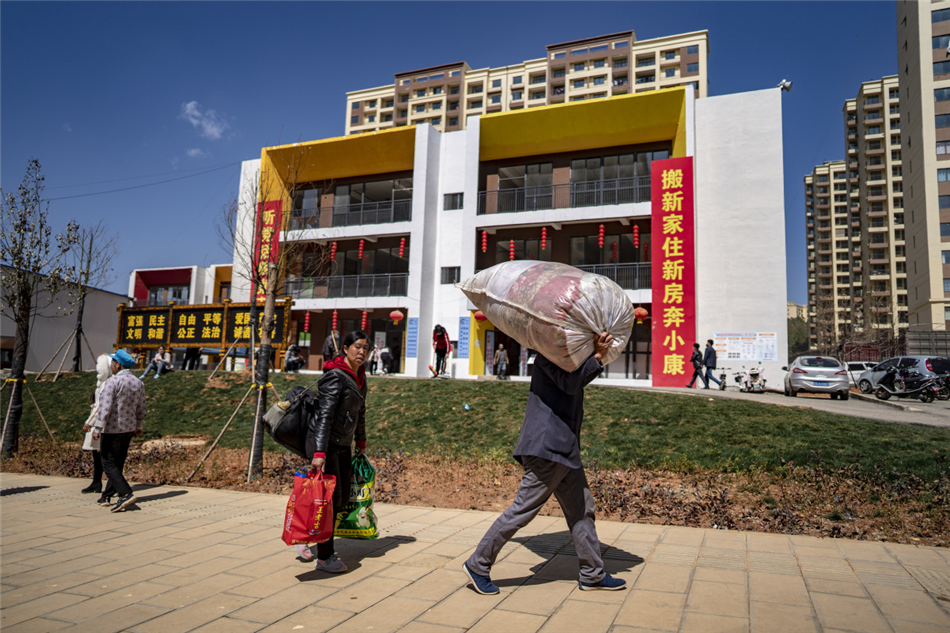Anti-poverty effort pushes ranking up

People move to their new apartments in Ludian county, Yunnan province, on March 11. More than 100,000 in poverty will move from mountains to urban areas across Yunnan to start their new lives as China plans to eradicate extreme poverty by the end of this year. [Photo/Xinhua]
China becomes 57th most prosperous nation as poverty rate drops below 1%
China's targeted poverty relief campaign has propelled the nation higher in a global ranking of prosperity, a recent study shows.
The Legatum Prosperity Index 2019 said China was the 57th most prosperous nation out of 167 countries and regions worldwide, up from 60th place in 2018 and 65th place in 2009.
The territories covered by the report are home to about 99.4 percent of the world's population, according to the 13th annual global prosperity report released by the London-based think tank Legatum Institute at the end of 2019.
The report said that the progress was largely driven by the improvements in enterprise conditions and people's living conditions in China, given that the domestic poverty rate dropped from 19 percent in 2009 to less than 1 percent last year.
China ranked 21st, 56th and 66th in terms of health, education and living conditions respectively, according to the latest ranking.
The index was calculated based on about 300 variables in 12 categories-governance, social capital, safety and security, personal freedom, living conditions, education, health, natural environment, investment environment, enterprise conditions, market access and infrastructure, and economic quality.
Some of the criteria-education, healthcare and living conditions-have coincided with China's poverty relief policy known as the freedom from "two worries" and access to "three securities".
The terms mean that authorities have to ensure that impoverished people can afford sufficient food and clothing (two worries) and have access to basic healthcare, compulsory education and safe housing (three securities) before officially removing their names from the poverty list.
Access to cleaning drinking water was recently added to the criteria.
The additional rules are lesser known to the public and have fueled domestic and international concerns that China's poverty line-determined a decade ago and still in use-is too low for China today.
While speaking at a recent news conference in Beijing, Liu Yongfu, head of the State Council Leading Group Office of Poverty Alleviation and
Development, China's top poverty relief agency, reiterated that the monetary poverty line, which is 2,300 yuan ($324), is not the sole identifier for the rural poor.
Other identifiers include qualifying for the "two worries" and "three securities" policy.
The actual poverty line climbed over 3,000 yuan last year and will exceed 4,000 yuan this year, he said.
"Internal figures show that those who have escaped poverty earn an average of more than 9,000 yuan a year," he said, adding that even for those yet to cast off poverty labels, incomes were around 6,000 yuan, far higher than the poverty line thanks to the "two worries" and "three securities" policy.
Liu noted that victory is already on the horizon, given that the number of rural poor-which stood at almost 99 million in late 2012-plummeted to about 5.51 million by the end of last year.
China will stick to the current poverty standard and strive to eliminate extreme poverty on schedule, he said, even though the novel coronavirus outbreak has temporarily prevented financially vulnerable rural workers from returning to factories and disrupted logistics chains for farm produce.
Editor: John Li